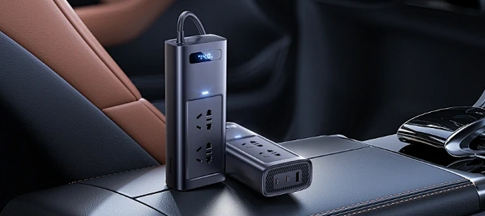Automotive Applications
2019-05-07
On - vehicle chargers, battery management systems, and charging sockets use NTC thermistors to monitor the temperature in real - time, ensuring charging safety and battery stability, and enhancing the performance and reliability of electric vehicles.
Automotive Applications

On-Board Charger (OBC)
The On-Board Charger (OBC) serves as the core device for electric vehicles to obtain AC power from home or public charging stations and charge the battery. Its safety and reliability directly impact the overall vehicle performance. Whether integrated into charging piles or onboard energy conversion boxes, OBCs must address potential risks such as temperature fluctuations and overcurrent during power conversion. While power conversion technologies and system architectures continue to optimize, designers still need to incorporate professional protection components to build multi-layered defense mechanisms. For example, incorporating suitable thermistors (temperature sensors) allows real-time monitoring of critical node temperature changes, effectively preventing device damage caused by overheating. Thermistor products, with their high-precision temperature response and rapid temperature change detection capabilities, provide protection for OBCs, significantly enhancing system stability and service life, and advancing the continuous upgrade of safe EV charging technologies.
Related Products

Battery Management System (BMS)
The battery is the heart of an electric vehicle, providing power for the vehicle. Battery safety and endurance are critical technologies. NTC thermistors, with their fast response, are ideal for measuring battery temperature. There are two temperature measurement methods:
Direct Sensing: NTC thermistors are installed on the battery surface or internal cell interconnection boards to directly measure cell or interconnect board temperatures.
Indirect Sensing: NTC thermistors are mounted on the battery module end plates or cover surfaces to measure cell and module cover temperatures.
Related Products

Electric Vehicle Charging Socket
Precision temperature sensor series specifically developed for new energy vehicle onboard charging sockets, including metal-head, composite, and other types. These sensors feature unique structural designs that directly contact connectors, providing accurate data support for EV charging control systems. EV battery charging is divided into slow charging and fast charging: slow charging converts AC to DC via the onboard charger, while fast charging directly inputs DC power from DC charging piles. Prolonged high currents through connectors during charging can generate excessive heat, posing threats to automotive electronics and user safety. Therefore, monitoring connector temperatures at charging sockets is crucial for ensuring charging safety.
Related Products
